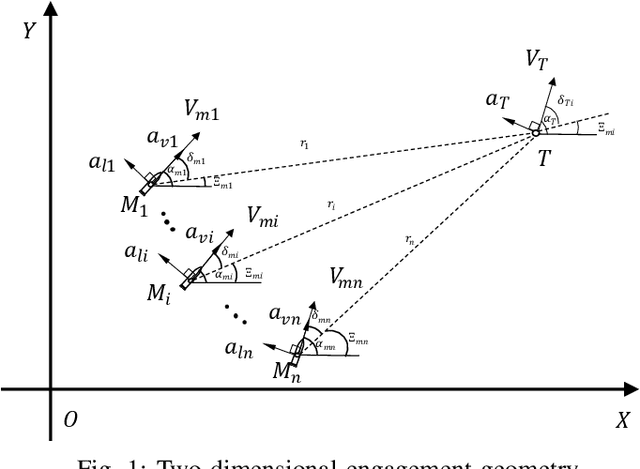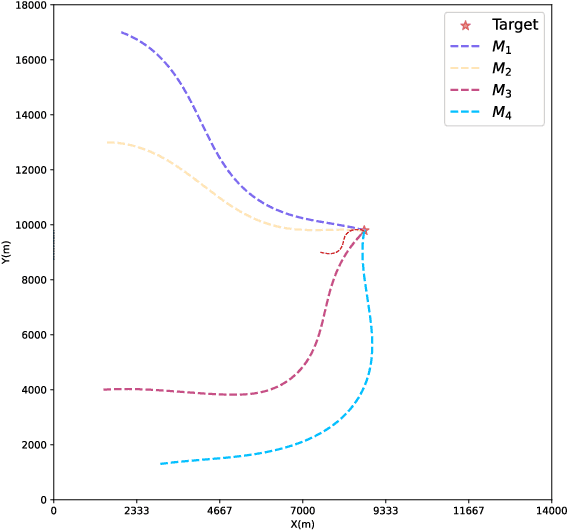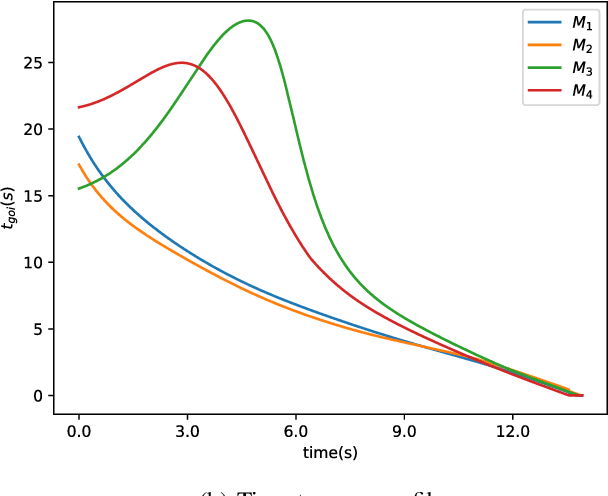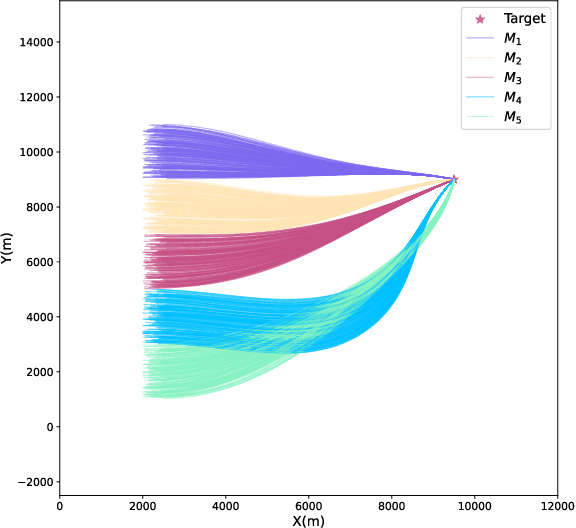Zhijia Zhao
Cooperative guidance of multiple missiles: a hybrid co-evolutionary approach
Aug 15, 2022



Abstract:Cooperative guidance of multiple missiles is a challenging task with rigorous constraints of time and space consensus, especially when attacking dynamic targets. In this paper, the cooperative guidance task is described as a distributed multi-objective cooperative optimization problem. To address the issues of non-stationarity and continuous control faced by cooperative guidance, the natural evolutionary strategy (NES) is improved along with an elitist adaptive learning technique to develop a novel natural co-evolutionary strategy (NCES). The gradients of original evolutionary strategy are rescaled to reduce the estimation bias caused by the interaction between the multiple missiles. Then, a hybrid co-evolutionary cooperative guidance law (HCCGL) is proposed by integrating the highly scalable co-evolutionary mechanism and the traditional guidance strategy. Finally, three simulations under different conditions demonstrate the effectiveness and superiority of this guidance law in solving cooperative guidance tasks with high accuracy. The proposed co-evolutionary approach has great prospects not only in cooperative guidance, but also in other application scenarios of multi-objective optimization, dynamic optimization and distributed control.
AARSynth: App-Aware Response Synthesis for User Reviews
Aug 28, 2020Abstract:Responding to user reviews promptly and satisfactorily improves application ratings, which is key to application popularity and success. The proliferation of such reviews makes it virtually impossible for developers to keep up with responding manually. To address this challenge, recent work has shown the possibility of automatic response generation. However, because the training review-response pairs are aggregated from many different apps, it remains challenging for such models to generate app-specific responses, which, on the other hand, are often desirable as apps have different features and concerns. Solving the challenge by simply building a model per app (i.e., training with review-response pairs of a single app) may be insufficient because individual apps have limited review-response pairs, and such pairs typically lack the relevant information needed to respond to a new review. To enable app-specific response generation, this work proposes AARSynth: an app-aware response synthesis system. The key idea behind AARSynth is to augment the seq2seq model with information specific to a given app. Given a new user review, it first retrieves the top-K most relevant app reviews and the most relevant snippet from the app description. The retrieved information and the new user review are then fed into a fused machine learning model that integrates the seq2seq model with a machine reading comprehension model. The latter helps digest the retrieved reviews and app description. Finally, the fused model generates a response that is customized to the given app. We evaluated AARSynth using a large corpus of reviews and responses from Google Play. The results show that AARSynth outperforms the state-of-the-art system by 22.2% on BLEU-4 score. Furthermore, our human study shows that AARSynth produces a statistically significant improvement in response quality compared to the state-of-the-art system.
 Add to Chrome
Add to Chrome Add to Firefox
Add to Firefox Add to Edge
Add to Edge